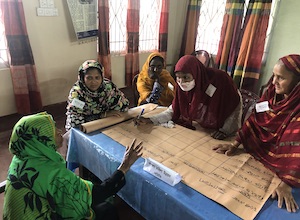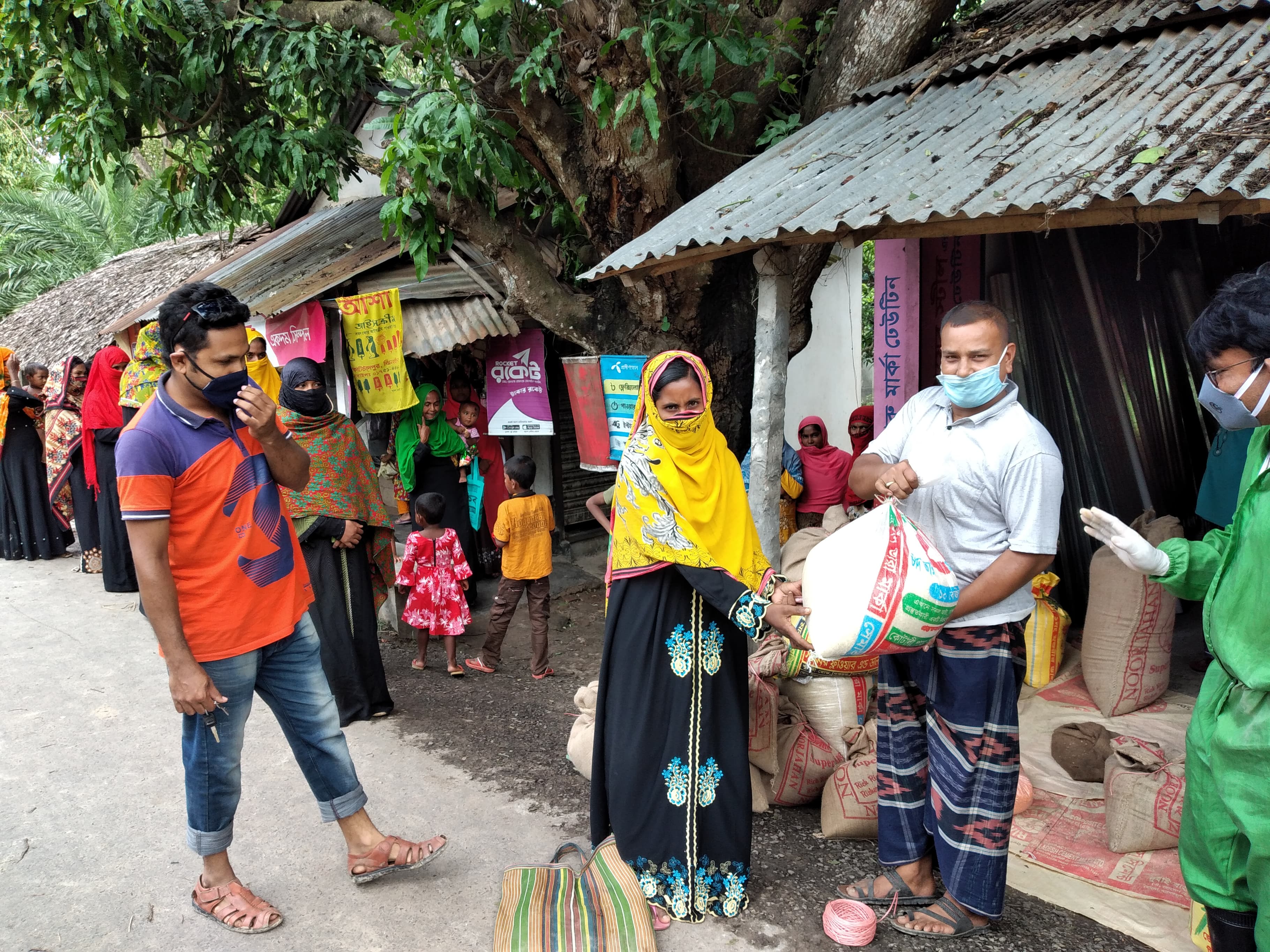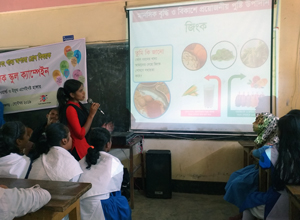1 Jul. 2009 Bangladesh
Female empowerment program in its ninth year. Women as a source of energy in their families and communities
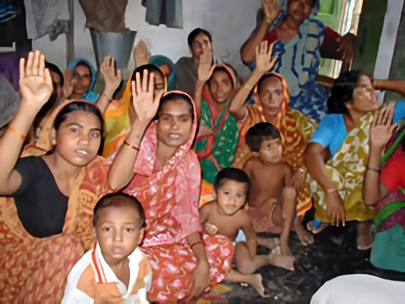
Members voicing their opinions at a regular conference meeting
Economic empowerment for women and awareness raising for their rights
In Bangladesh, many girls marry between the ages of 13 and 15 to a husband of their family or relative’s choosing. These young wives have no voice in family planning and give birth to many children at a young age, a time when pregnancy takes a considerable toll on a woman’s health. Furthermore, decisions about whether or not to send children to school or take them to the hospital when they are sick are made by the fathers, and boys are given priority over girls. In this male-dominated society, women possess very little control over their own lives, and almost no decision over household and societal affairs.
In order to promote a society where women are independent and empowered participants, HFW began this program in 2000. The program currently organizes women in 22 villages, forming the Women Ending Hunger (WEH) group. Together with its 400 members, the program organizes training on topics such as livestock rearing and sewing. In 2006, WEH established an award to identify exemplary startup enterprises and business plans to receive awards of 3,500 BDT (approximately ¥7,000) for investment in these initiatives.
WEH has become an integral part of these villages, and as women have grown used to voicing their opinions publicly, new initiatives have begun, such as a group that performs plays in villages' open spaces about improving the status of women. As a result, awareness of the importance of women’s rights in villages has increased. For example, community members have come forth in support of applications for the WEH award, proclaiming that “as we try to improve our communities, we cannot ignore the plight of women.” Furthermore, the increased income of women participating in this program have allowed them to improve the lives of their family members by providing food and invest in their children’s education.
There is a rule in WEH that each member must put aside five BDT (approximately ¥10) into savings each week. However, emergencies such as sudden illnesses in the family have prevented some members from meeting this requirement, and this is keeping some women from continuing membership. HFW is currently investigating and making the list of this poorest sector of women who cannot participate in WEH and intends to strengthen its support in this area.
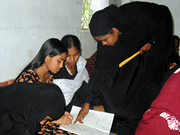
Tailoring training for income generation
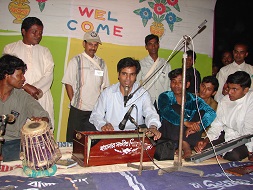
Local volunteers sensitize people on women’s rights by songs and dramas
Message from Bangladesh
Asmany Begum


